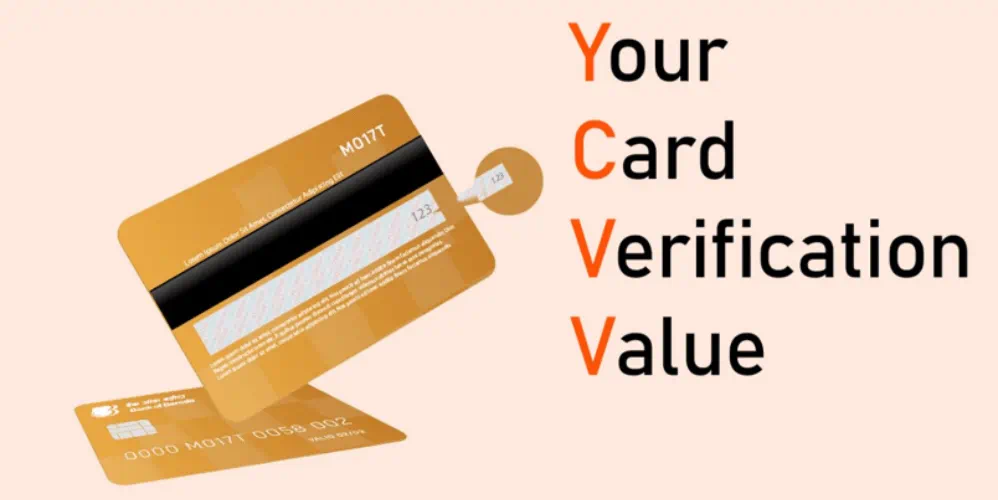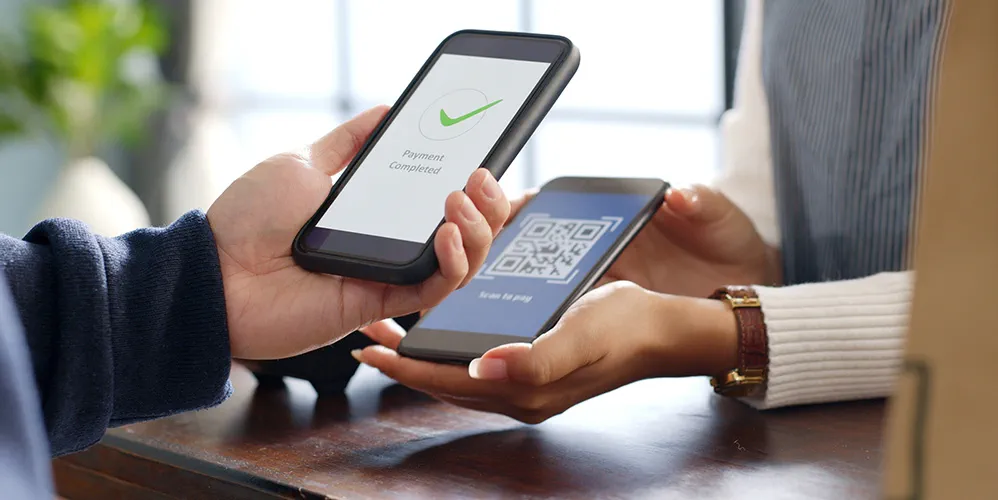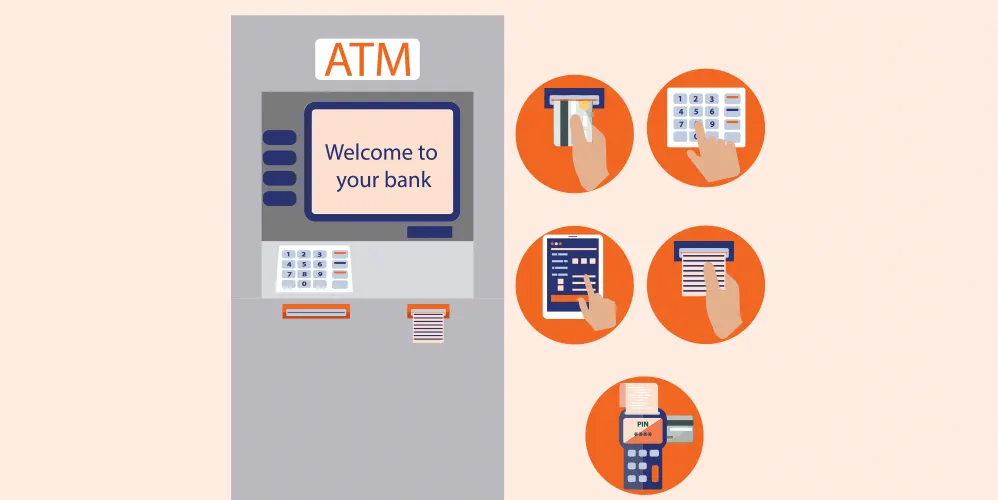
एनआरआई खाता खोलने के लिए आवश्यक दस्तावेज
27 दिसम्बर 2023

Table of Content
Introduction
If you are considering opening an NRI account, a common concern that comes to mind is: What documents are required for an NRI account?
Arranging and verifying all the documents can take time and effort. Approving documents for an NRI account may also require significant time.
Even though it is best to learn more about the documents required for an NRI account from your financial institution, you can still have an overview to be better prepared.
In this article, we will discuss all the documents required for an NRI account and tips on preparing them.
Understand the Types of NRI Accounts
It is essential to understand the various types of NRI accounts before we discuss the documents required to open an NRI account. There are mainly three types of NRI accounts: NRE Accounts, NRO Accounts, and FCNR Accounts. Here are their key features:
NRE Accounts
- NRE stands for Non-Residential External.
- NRE accounts are NRI bank accounts used to hold the earnings from the NRI’s country of residence.
- Money is held in INR after conversion.
- Individuals have the option of savings, current accounts, and FDs.
- The account balance is fully transferable.
- Joint accounts can be opened only with an NRI.
NRO Accounts
- NRO stands for Non-Residential Ordinary accounts.
- NRI account holders use NRO Accounts to retain earnings originating in India.
- Naturally, these earnings are held in INR.
- The source of earnings can be rent, dividends, pensions, etc.
- The balance can be transferred up to 1 million USD or its equivalent per year, while the interest earned on the balance remains fully transferable.
- Joint accounts may be opened with an Indian resident or an NRI.
FCNR accounts
- FCNR stands for Foreign Currency Non-Residential Accounts.
- These are meant to hold earnings in currencies other than INR.
- Individuals can make deposits in any of the nine currencies prescribed by the RBI for FCNR accounts, including USD, GBP, EUR, AUD, and CAD.
- These accounts only allow fixed deposits with a minimum maturity period of 1 year up to 5 years.
- Joint accounts can be opened only with an NRI.
- Considering the varying currency exchange rates for these accounts is necessary.
It is important to remember that while all these accounts are meant for Indians residing abroad, they have distinct use cases. Therefore, the process of opening these accounts may also differ depending on the country and the financial institution.
The primary documents required to open NRI accounts are similar, but there may be slight variations in NRI Account Opening Documents based on the type of account and the bank’s policies.
Therefore, confirming the specific requirements about an NRI account with your chosen bank is crucial when understanding NRI account documents.
Also Read: Different Types of NRI Banking Services
Basic Identification Documents
Below, we have discussed some of the required documents for an NRI account opening.
Proof of Indian Origin
You need this to establish your Indian origins. A passport and visa are the standard documents used as proof of Indian origin.
The passport serves as primary proof of your identity, citizenship, and NRI status. The visa confirms your legal status as a non-resident Indian.
Therefore, always ensure that your passport and visa are valid and up-to-date.
You may need a Person of Indian Origin (PIO) or Overseas Citizen of India (OCI) card as additional proof of your Indian origin and NRI status.
Proof of Address
These documents are needed to verify your foreign residence. Generally, utility bills, bank statements, or rental agreements serve as proof of address.
To establish a foreign address, NRIs often need to provide documents like (any one):
i. Passport issued in a foreign jurisdiction containing overseas address
ii. Driving License issued in a foreign jurisdiction containing overseas address
iii. Government-issued National ID having an address in the country of Residence
iv. Utility Bill in the name of the customer (Electricity, Water, Gas, Telephone, Post-paid Mobile) – Not more than 2 months old
v. Registered Tenancy / Rent/ Lease Agreement
vi. Property or Municipal Tax Receipt
vii. Letter of allotment of accommodation from employer issued by State Government or Central Government Departments, statutory or regulatory bodies, public sector undertakings, scheduled commercial banks, financial institutions and listed companies and leave and licence agreements with such employers allotting official accommodation
viii. Original latest overseas bank account statement carrying overseas address - Not more than 2 months old
ix. Employer's Certificate confirming overseas address
x. Address proof of the blood relative as per points i) to ix) above (spouse, father, mother, sister, brother, and child) with whom NRI is staying along with supporting proof of relationship (Passport, PAN Card, Driving License, Voter Identity Card, Aadhaar Card, Marriage Certificate, Birth Certificate) and Declaration signed by relative
xi. Letter/ Certificate I ID issued by foreign college/ university.
In case OVDs presented by OCI/PIO does not contain details of the Address, in such cases, a letter issued by the foreign embassy / mission in India or OCI / PIO Card having overseas address may also be accepted along with OVDs.
Also Read: What are the Benefits of an NRI Account?
Additional Documents
Besides these essential documents needed for an NRI account, you may need to submit certain additional documents depending on your bank’s policies and the type of account you hold.
PAN Card:
Some banks may require your PAN (Permanent Account Number) card in India, especially for income-related transactions.
Form 60:
You may need to apply for one or fill out Form 60 if you don’t have a PAN card.
Form 60 is a declaration of the non-availability of a PAN card.
Whereas if you’re opening an FCNR (Foreign Currency Non-Resident) account, you will need to complete a specific account opening form provided by the bank for the chosen foreign currency.
In addition to these, you may also need KYC for an NRI account.
Notarization and Apostille
In some cases, authorities may need to verify the validity and authenticity of the NRI account documents. For example, if you give someone a power of attorney over your NRI account or if affidavits or legal documents are involved, your bank may need to verify such documents.
Notarization and Apostille are two processes used for this purpose.
Notarization
Notarization is verifying the authenticity of a document or signature by a notary public, which means a legally authorised public officer. These officers are witnesses to document signings and verify the parties’ identities. Notarization is basically done to prevent fraud and ensure the legality of the documents.
Apostille
Apostille is a specific form of authentication recognised under the Hague Convention of 1961. The Hague Convention provides a standard procedure for legalising and validating documents for use in foreign countries.
This is a critical step to ensure the validity and acceptance of all the documents needed for an NRI account in foreign countries.
To obtain an Apostille, you need to seek the help of the Ministry of External Affairs (MEA) or its authorised branches in India.
Tips for Document Preparation
Finding and managing all the NRI account requirements can be a hectic process. However, proper organisation and planning can help make the entire banking experience smooth and hassle-free. Here are a few tips to ensure all your NRI Account Opening Documents are available with you when you need them:
● Document Management System
You can opt for a Document Management system to get a systematic approach to organizing your documents. Consider organizing all your documents by address, identity, or account type.
● Use Digital Copies
It is better to use digital copies of important documents as they can be easily accessed and shared. They also have minimal risk of theft and loss of data. Therefore, always consider scanning and digitising all your essential documents. Remember to back up these documents promptly and keep a check for document expiry to avoid data loss.
● Document naming conventions
If you name your documents well, there are fewer chances of losing or misplacing them. Consider naming your documents in detail, and specify the date and type of account as well. Review your documents frequently and keep them updated in case any information changes.
Also Read: Managing Your NRI Account: Tips for Financial Success
● Keep the physical copies secure
Some financial transactions may necessitate the use of physical copies. It is essential to keep these original documents safe, as they are typically irreplaceable. Consider storing them in a secure, fireproof safe, or a bank locker.
● Avoid document overload
Only keep those documents which you need. Unnecessary cluttering of your folders can lead to confusion and mess. Delete the older versions and extra copies in your storage folder.
● Seek professional assistance
It is always advised to consult a professional about an NRI account to manage your documents better. Keep any legal or financial assistance in the loop about your documentation, and stay informed. These tips will help you stay ordered and informed while opening an NRI account.
Also Read: Complete Guide On NRI Banking
Popular Articles
Related Articles



What is CVV on a Debit Card? Understanding Its Importance and Security Features


How to Update Your FASTag KYC: Step-by-Step Guide for Online & Offline Methods




The Importance of Pension Funds: Secure Your Future with Steady Retirement Income

-
डिस्क्लेमर
इस लेख/इन्फोग्राफिक/चित्र/वीडियो की सामग्री का उद्देश्य केवल सूचना से है और जरूरी नहीं कि यह बैंक ऑफ बड़ौदा के विचारों को प्रतिबिंबित करे। सामग्री प्रकृति में सामान्य हैं और यह केवल सूचना मात्र है। यह आपकी विशेष परिस्थितियों में विशिष्ट सलाह का विकल्प नहीं होगा । बैंक ऑफ बड़ौदा और/या इसके सहयोगी और इसकी सहायक कंपनियां सटीकता के संबंध में कोई प्रतिनिधित्व नहीं करती हैं; यहां निहित या अन्यथा प्रदान की गई किसी भी जानकारी की पूर्णता या विश्वसनीयता और इसके द्वारा उसी के संबंध में किसी भी दायित्व को अस्वीकार करें। जानकारी अद्यतन, पूर्णता, संशोधन, सत्यापन और संशोधन के अधीन है और यह भौतिक रूप से बदल सकती है। इसकी सूचना किसी भी क्षेत्राधिकार में किसी भी व्यक्ति द्वारा वितरण या उपयोग के लिए अभिप्रेत नहीं है, जहां ऐसा वितरण या उपयोग कानून या विनियमन के विपरीत होगा या बैंक ऑफ बड़ौदा या उसके सहयोगियों को किसी भी लाइसेंसिंग या पंजीकरण आवश्यकताओं के अधीन करेगा । उल्लिखित सामग्री और सूचना के आधार पर किसी भी वित्तीय निर्णय लेने के लिए पाठक द्वारा किए गए किसी भी प्रत्यक्ष/अप्रत्यक्ष नुकसान या देयता के लिए बैंक ऑफ बड़ौदा जिम्मेदार नहीं होगा । कोई भी वित्तीय निर्णय लेने से पहले अपने वित्तीय सलाहकार से सलाह जरूर लें।
एनआरआई बैंकिंग संबंधी संपूर्ण निर्देशिका
एनआरआई का अर्थ अ-निवासी भारतीय होता है। एनआरआई बैंकिंग एक महत्वपूर्ण वित्तीय सेवा है जो विदेशों में रहने वाले भारतीय नागरिकों की विशिष्ट समस्याओं का समाधान करती है। यह बैंकिंग श्रेत्र की एक विशिष्ट सेवा है जो भारत में एनआरआई वित्त और एनआरआई निवेश के कुशल प्रबंधन की सुविधा प्रदान करती है। इस संबंध में आवश्यक होने पर एनआरआई बैंकिंग मेजबान देशों में एनआरआई ग्राहकों के खाते में निधियों का निर्बाध अंतरण भी सुनिश्चित करती है।
एनआरआई के लिए प्रभावी वित्तीय प्रबंधन: युक्तियां और कार्यनीति
एक अनिवासी भारतीय (एनआरआई) के रूप में विदेश में रहना काफी रोमांचाकारी व लाभदायक होता है हालाकिं अनिवासी भारतीयों के लिए यह बाहर रहकर धनराषी का प्रबंधन करना काफी चुनौतीपूर्ण होता है। आय, व्यय, निवेश एवं कराधान आदि में संतुलन रखपाना काफी कठिन कार्य है। करना एक जटिल कार्य हो सकता है, मगर सही समुचित दृष्टिकोण के साथ, इसे आसानी से पूरा किया जा सकता है। इस ब्लॉग में, हम एक एनआरआई के रूप में वित्त के प्रबंधन के विभिन्न पहलुओं के बारे में , हम जिसमें वित्तीय लक्ष्य का निर्धारण करना, विविधीकरण और जोखिम प्रबंधन, वित्तीय योजनाओं की निगरानी और समायोजन और कराधान को समझ आदि शामिल है। अंतत: आपको स्पष्ट तौर पर पता चल जाएगा कि कौन सा एनआरआई खाता आपकी वित्तीय आवश्यकताओं के अनुरूप है।

